I Can't Help But Feel That Those Who Believe The Medical Establishment Will Save Them . . .2/15/2021 . . . are on the same track as the horse in this Alex Colville painting.
2 Comments
Adolf Fényes, originally Fischmann (1867-1945), was a Hungarian painter of Jewish ancestry. As was the case with many Hungarian Jewish intellectuals and artists, Fényes was drawn to communism after the First World War and became an active member of Béla Kun's, originally Kohn, short-lived Hungarian Soviet Republic, in which he served as a member of the "Artistic Executive Committee."
Fényes's attraction to and involvement in the failed, oppressive Hungarian Soviet Republic haunted him for the remainder of his life. Though he was granted reprieves and exemptions by the Horthy Regime, Fényes's communist past and Jewish ancestry made him a marked man as World War II unfolded. Toward the end of the Second World War, the Arrow Cross Party - who had by that time forced Horthy from power - interned Fenyés and most of Budapest's Jews into the Budapest Ghetto. Fényes barely survived the Siege of Budapest and died shortly afterward. Some sources claim he died in hospital after suffering a stroke; others claim he succumbed to hunger in the Hungarian capital in the aftermath of the 50-day battle that reduced most of Budapest to rubble. As for Fényes's paintings, I appreciate the charming simplicity of his folk compositions; particularly his still lifes, which remind me of scenes I used to encounter whenever I visited the houses of grandparents and other older relatives during my childhood trips to Hungary. In the first part of my exploration of this theme, I addressed the yearning for a vindictive God as an indication of regressive consciousness - a latent desire to return to a state of sin-consciousness and simple obedience. In this part, I will touch upon passivity.
Any yearning for the avenging God described in the Old Testament is an innate craving for religious and spiritual passivity - the coveting of a powerless, helpless and child-like state in which we essentially wish to do nothing more than sit idly by and let daddy punish all evil doers and put everything right for us. The very act of passively aching for the divine to appear and vindictively punish others on our behalf is in itself an obvious red flag, one I will deal with in a future post; in this post I will concentrate solely on the passivity inherent in concepts such as for us and our behalf. Though God certainly does arrange many things specifically for us and our behalf, the existence of freedom and agency prevent Him for being able to arrange everything for us and on our behalf. Thus, He relies on us - and also anticipates and expects us - to arrange many things specifically for Him and on His behalf. This is the essence of co-creation - the understanding that Man needs to play an active role in this world and in eternity. This anticipation and expectation is a testament to our freedom and agency - the same freedom and agency with which God created and continues to create the world. Wanting God to simply appear and smite those who oppose Creation is an abdication of freedom and agency - the willing renunciation of our spiritual and religious responsibilities and duties as active co-creators, both in this world and the world to come. Creativity is intrinsically tied to activity. Sitting around hoping God will appear and put everything right is neither creative nor active. In fact, the very concept of putting things right as an ultimate goal for this world is folly because it, once again, works against the reality of freedom and agency, which intrinsically contains the potential for evil. Nevertheless, this does not imply that we should sit around and allow everything to go wrong. Our task is to actively set right those things we can set right while at the same time understanding and accepting that we cannot nor should we try to set everything right. If everyone assumed the responsibility of freedom and agency to actively and creatively set right those things he or she could set right, then the world could - theoretically at least - be set right. Yet such an amazing development would still not negate the potential for evil inherent in freedom and agency. Nor would it eliminate suffering, entropy, and death. To passively yearn for the annihilation of all evil in the hope it will also do away with all potential for evil is to passively yearn for the annihilation of freedom and agency. It is a passive yearning for non-being over being. Conversely, to actively assume the role of a vindictive force that seeks to destroy all evil in the world in the name of justice is an abuse of freedom and agency. Resistance and opposition to evil leave open the possibility of freedom, but vindictiveness leads only to slavery. The existence of freedom and agency carries the potential for evil within it. Hence, an active response to evil does not entail an impossible desire to see this potential abolished from the world, but rather to resist the potential within ourselves, overcome it as best as we can, and respond to it creatively from the core of our own freedom and agency in much the same way Christ used His freedom and agency to resist, overcome, and creatively respond to evil. I encourage everyone to visit the Fourth Gospel Blog and read Wm Jas Tychonievich's thought-provoking interpretation of the feeding of the five thousand as described John 6:1-14.
The whole post is excellent, but I found William's observation regarding the moral behind the miracle particularly insightful and uplifting (bold and slight editing added by me): Whatever the mechanics of the miracle, I think the significant thing is that Jesus (in some way) multiplied food provided by one of the members of the crowd -- rather than, say, turning stones into bread (as, according to Matthew, the devil had once tempted him to do) or causing manna to rain down from the sky. The miracle was not a pure deus ex machina, but was an amplification of human effort. Seeing a crowd of 5,000 hungry people, the lad offered to share his obviously inadequate loaves and fishes, and Philip passed this offer on to Jesus -- and Jesus said, Okay, let's do it. He accepted the paltry offering, gave thanks for it, had the disciples distribute it to the multitude -- and somehow or other (we are not told how, probably because it's not the point), it was enough, enough and to spare. I think the moral here is that we are to do what we can, offer what we can -- even if it seems laughably inadequate, even if it seems as if it could not possibly have any real effect or "change the world" -- and leave the results to the Lord. Now ye may suppose that this is foolishness in me; but behold I say unto you, that by small and simple things are great things brought to pass; and small means in many instances doth confound the wise. And the Lord God doth work by means to bring about his great and eternal purposes; and by very small means the Lord doth confound the wise and bringeth about the salvation of many souls (Alma 37:6-7). After all, if I didn't believe something like that, why would I even be writing this? Why bother with these notes of mine that are read by a few hundred of the billions of people in the world and probably taken to heart by fewer than that? Why bother doing anything at all, we who are not destined to be movers and shakers? Trying to guess the probably (and probably insignificant) consequences of our actions is a trap. Just do good things and leave the rest to God. That is the moral of the feeding of the five thousand. I believe William's insight is especially relevant for our time and place. If we can't impact the world as the big movers and shakers do, then why bother doing anything at all? Obscurity and irrelevance are hardly motivating forces. Yet the desire to make it big sorely misses the point. In this time and place we need to focus on doing good things and let God take care of the rest. Think about it. Nearly every, if not every, contemporary "mover and shaker" out there is, to some degree, actively opposed to God and Creation. I'll go a step further and add that active opposition to God is a decisive factor in who does and does not become a mover and shaker in today's world. Making it big today means taking the ticket. It really is as simple as that. The Establishment and its System will happily promote anyone and everyone who chooses to oppose God; and efficiently filter out, ignore, ridicule, or eliminate anyone and everyone who chooses to side with God. The Establishment and its System want nothing to do with good men. And they certainly do not want any good man to be a mover and a shaker. So, becoming a mover and a shaker should not be a priority; and it should definitely not be the primary motivation behind anything you are currently doing. Rather than dream of "making it big", focus your attention on "making it good" and leave the rest to God. The good things you do every day, however seemingly small and insignificant, may end up having a bigger impact than you could ever imagine, both in this world and in eternity. An encouraging moral, to say the least. Why do the enemy work so diligently to make the world so joyless?
Because they want to disarm us. The enemy cannot provide us with joy because joy emanates from the Divine and from what is divine within us. Yes, the enemy can offer all sorts of amusements, distractions, pleasures, comforts, but without the infusion of the Divine, these things can never be truly joy-full - merely amusing, distracting, pleasurable, or comfortable. The enemy's "joy" is nothing more than temptations to empty promises, but in this time and place, even empty promises strike the enemy as too "full." Consequently, the enemy has replaced its amusements with depression, its distractions with intrusions, its pleasures with pain, and its comforts with grief - all in the name of destroying joy. For the enemy, the presence of joy is a testament to the presence of God and the presence of God's love. As such, the enemy see joy as a most heinous weapon. Joy is not a weapon, but if the enemy believe it to be one, then be fully-armed at all times and attack them with this peculiar weapon every chance you get. Let joy pierce depression, repel intrusion, smother pain, and assail grief. Let the presence of God shine. Let the presence of God's love burn. You are not a human being in search of a spiritual experience. You are a spiritual being immersed in a human experience.
- Pierre Teilhard du Chardin When I read about or personally encounter people who have willingly and actively aligned with the insanity that has sadly become part-and-parcel of the here and now, the following question inevitably bobs to the surface of my mind, "What's in your head?" The question is a common one, but in my mind it appears as Dolores O'Riordan's haunting refrain from the Cranberries 1994 alternative-rock hit, Zombie. A protest song, Zombie, was written in memory of two boys - Jonathan Ball and Tim Parry - who were killed in the 1993 Warrington Bombings carried out by the IRA. The disquieting subject matter of the song coupled with O'Riordan's soul-stirring delivery packs an undeniable emotional punch, which the music video - replete with black and white images of war and violence juxtaposed with color snippets of Ms. O'Riordan as golden mythic goddess standing before a cross surrounded with silver-skinned boys with bows and arrows in a possible allusion to Saint Sebastian - only intensifies. Still one of the most gut-wrenching rock songs and videos from the 1990s - perhaps ever. Whenever I hear the song today, it transcends the Warrington Bombings and superimposes itself on the unfolding tragedy and zombies of our own time and place. What's in your head, indeed. Note added: Dolores O'Riordan passed away tragically a little more than two years ago; thus, Zombie will forever remain the Cranberries biggest hit. In connection with yesterday's post, I have mulling over our contemporary "dark saviors" - those who promise to save the world by putting people and planet first. I started thinking about how everything evil engages in today is packaged under the guise of temporal salvation, which is presented as an ultimate good.
Since the vast majority of people in the world have, apparently, abandoned all faith in the salvation Christ offers in the form of deliverance from sin and its consequences, the promise of temporal salvation, in the form of deliverance from suffering and its consequences, has readily become the only form of salvation that moderns appear willing to consider. Take a moment to consider the many ways in which our totalitarian overlords promise to "save us." They promise to deliver man from the harm, loss, and ruin caused by climate change, racism, inequality, social constructs, nationalism, political oppression, deadly plagues and so forth. They insist that saving man from these temporal catastrophes is not only necessary but urgently inevitable. They claim they have all the tools and mechanisms required to manifest this salvation in the world. But the success of the great temporal salvation requires that man become submissive, passive, and enslaved or, as the dark saviors prefer to put it, "co-operative", "responsible", and "accountable." The dark saviors want people to believe - to fully, wholeheartedly, and devoutly believe - in no other world but the temporal world. The dark saviors want people to accept this world as a meaningless prison, yet at the same time motivate man to aspire to the "meaning" of making the meaningless prison comfortable, fair, and pain-free. The dark saviors pretend to offer meaning and "being", but what they actually wield is meaninglessness and non-being. The dark saviors' creativity is anti-creativity for it "creates" only non-being; it steals from God to create a caricature of being - a false image of being. This false image of being fuels the push to save the world, and it hides within it the final drive to damn all souls before non-being consumes and destroys the world. The dark saviors are the embodiment of diabolical freedom and final evil.* Diabolical freedom is the final and ultimate resistance against Christ. It represents the final necessity of the world and only the world and the final enslavement to the world. Final evil is the destruction of man - the active and willing choice of the way of non-being over the way of Being. The final destruction of man also entails the final destruction of the temporal world the dark saviors' promise to "save". *The concepts of diabolical freedom and final evil are drawn from Nikolai Berdyaev's The Meaning of the Creative Act. Over at his blog, Vox Day has shared a link to a Time Magazine article that essentially serves as a straightforward admission of evil. Though The Secret History of the Shadow Campaign That Saved the 2020 Election focuses exclusively on a "noble" conspiracy that worked behind the scenes to save American democracy, the article transcends its subject matter and instead serves to exemplify the explicit nature of the totalitarian evil that now controls the world - an explicit evil that, at this point, should be abundantly clear to everyone (yet, magically, isn't). Although it offers some virtuous-sounding but otherwise brittle justifications for the actions and events outlined within its paragraphs, the article itself is essentially little more than an open confession of conspiracy. The conspiracy does not surprise me in the slightest. Nor does the confession. But the direct nature of the confession is rather impressive. The real message is startlingly clear - we're crooked and corrupt and we're not afraid to show it - we're evil and we know it. And we want you to know it and embrace it. A few choice excerpts from the article (emphasis added): A weird thing happened right after the Nov. 3 election: nothing. The nation was braced for chaos. Liberal groups had vowed to take to the streets, planning hundreds of protests across the country. Right-wing militias were girding for battle. In a poll before Election Day, 75% of Americans voiced concern about violence. Instead, an eerie quiet descended. As President Trump refused to concede, the response was not mass action but crickets. When media organizations called the race for Joe Biden on Nov. 7, jubilation broke out instead, as people thronged cities across the U.S. to celebrate the democratic process that resulted in Trump’s ouster. A second odd thing happened amid Trump’s attempts to reverse the result: corporate America turned on him. Hundreds of major business leaders, many of whom had backed Trump’s candidacy and supported his policies, called on him to concede. To the President, something felt amiss. “It was all very, very strange,” Trump said on Dec. 2. “Within days after the election, we witnessed an orchestrated effort to anoint the winner, even while many key states were still being counted.” In a way, Trump was right. There was a conspiracy unfolding behind the scenes, one that both curtailed the protests and coordinated the resistance from CEOs. Both surprises were the result of an informal alliance between left-wing activists and business titans. The pact was formalized in a terse, little-noticed joint statement of the U.S. Chamber of Commerce and AFL-CIO published on Election Day. Both sides would come to see it as a sort of implicit bargain–inspired by the summer’s massive, sometimes destructive racial-justice protests–in which the forces of labor came together with the forces of capital to keep the peace and oppose Trump’s assault on democracy. The handshake between business and labor was just one component of a vast, cross-partisan campaign to protect the election–an extraordinary shadow effort dedicated not to winning the vote but to ensuring it would be free and fair, credible and uncorrupted. For more than a year, a loosely organized coalition of operatives scrambled to shore up America’s institutions as they came under simultaneous attack from a remorseless pandemic and an autocratically inclined President. Though much of this activity took place on the left, it was separate from the Biden campaign and crossed ideological lines, with crucial contributions by nonpartisan and conservative actors. The scenario the shadow campaigners were desperate to stop was not a Trump victory. It was an election so calamitous that no result could be discerned at all, a failure of the central act of democratic self-governance that has been a hallmark of America since its founding. . . . This is the inside story of the conspiracy to save the 2020 election, based on access to the group’s inner workings, never-before-seen documents and interviews with dozens of those involved from across the political spectrum. It is the story of an unprecedented, creative and determined campaign whose success also reveals how close the nation came to disaster. “Every attempt to interfere with the proper outcome of the election was defeated,” says Ian Bassin, co-founder of Protect Democracy, a nonpartisan rule-of-law advocacy group. “But it’s massively important for the country to understand that it didn’t happen accidentally. The system didn’t work magically. Democracy is not self-executing.” Yeah, we conspired, and we conspired hard, but we did it all to save you and your democracy. So, how about showing a little thanks and appreciation . . . The System is not merely corrupt; it is irreparably good-proof. And don't take it from Vox Day, or me, or anyone else. Take it from the Establishment itself. This article provides a good example of the various ways the Establishment tries to lull you to their side. If you haven't already begun to do so, I urge you to begin the process of system-distancing now - there's simply no other way forward at this point. Note added: System-distancing involves rejecting democracy and other evil abstractions as potential vehicles for hope. Just stop and recognize once and for all that hope cannot exist within the System because it has been rendered hope-less. Any and all hope exists only beyond the System. The Hungarian translation of the illustrated edition of The Hobbit featured above was among the gifts my wife and I gave our nine-year-old son this past Christmas. My son was happy to receive the book, but in the days and weeks that followed, he showed little interest in reading it. Every now and then I gently suggested he pick the book up and give it a try, but I went no further than that. My philosophy about books is they will be read when they need to be read. Forcing them upon people, especially children, often does more harm than good.
I did not read The Hobbit until I was thirteen, which is rather late if you really stop to think about it. Nevertheless, reading Tolkien's classic at that point in my life proved to be exactly the right time for me. If I had read it earlier or later, I may not have been as engrossed in it as I had been then. I may not have appreciated it as much as I had at that point in time. I may not have gone on to read The Lord of Rings immediately afterward the way I had. Well, you can imagine my joy when I noticed my son had begun to read his Christmas gift this past Saturday. In the most nonchalant tone I could muster, I casually asked him if he was enjoying the story. His eyes remained glued to the page and the only response I received was a quick nod. He's up to Chapter Seven now. When we went for our evening walk tonight, my little guy kept badgering me to tell him exactly what kind of creature Beorn is. Is he a bear? Is he a man? Is he some kind of bear-man? Rarely have I felt it so difficult to keep something to myself. "Just keep reading; you'll find out." As we continued our walk I did my best to remember the last time I had read The Hobbit. If memory serves me well, it was about twenty years ago. With the exception of some excerpt-reading here and there, I haven't touched any Tolkien in over a decade. After this realization, I immediately informed my son that I would start re-reading The Hobbit right away to better be able to discuss the book with him. "I'll join you on your journey," I said as we turned the corner and headed for home. I am immensely pleased that my little guy has embarked upon the Tolkien journey. After a long sojourn, I am continuing. May our journey never end. Note added: My son has also expressed an interest in reading The Hobbit in the original English once he hones his English reading skills a little more. Something tells me this will happen by summer at the very latest. |
Blog and Comments
Blog posts tend to be spontaneous, unpolished, first draft entries ranging from the insightful and periodically profound to the poorly-argued and occasionally disparaging. Comments are welcome but moderated. Please use your name or a pseudonym in comments. Emails welcome: f er en c ber g er (at) h otm ail (dot) co m Blogs/Sites I Read
Bruce Charlton's Notions Meeting the Masters From The Narrow Desert Synlogos ✞ Aggregator New World Island New World Island YouTube Steeple Tea Adam Piggott Fourth Gospel Blog The Orthosphere Junior Ganymede Trees and Triads nicholasberdyaev Archives
July 2024
|
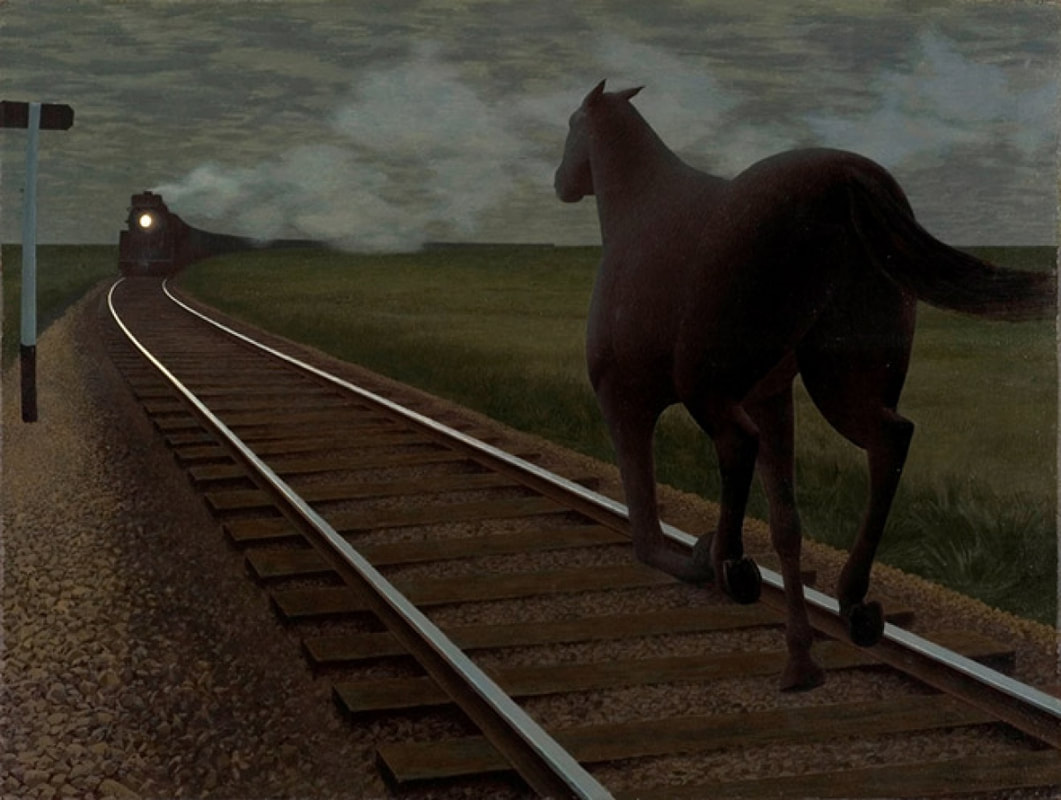
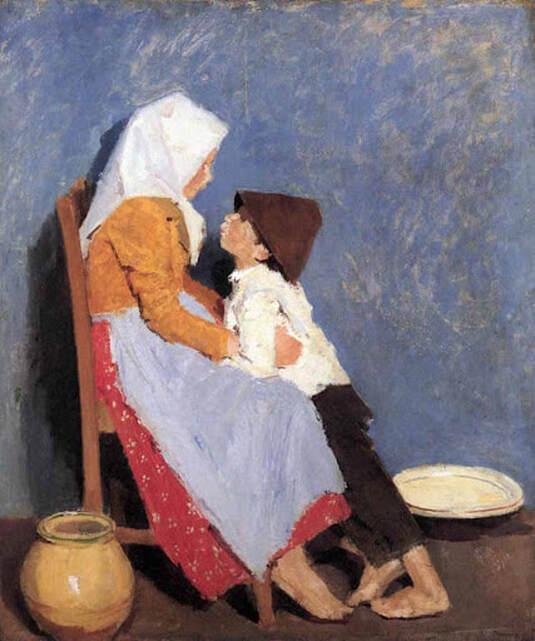
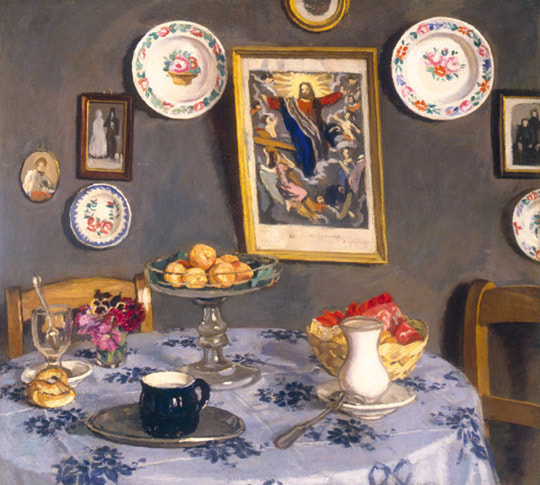
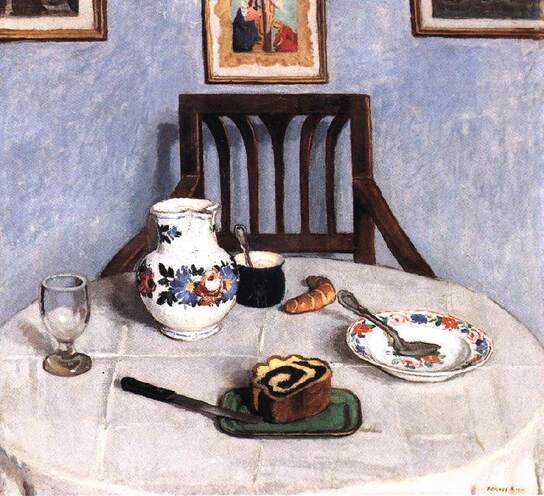
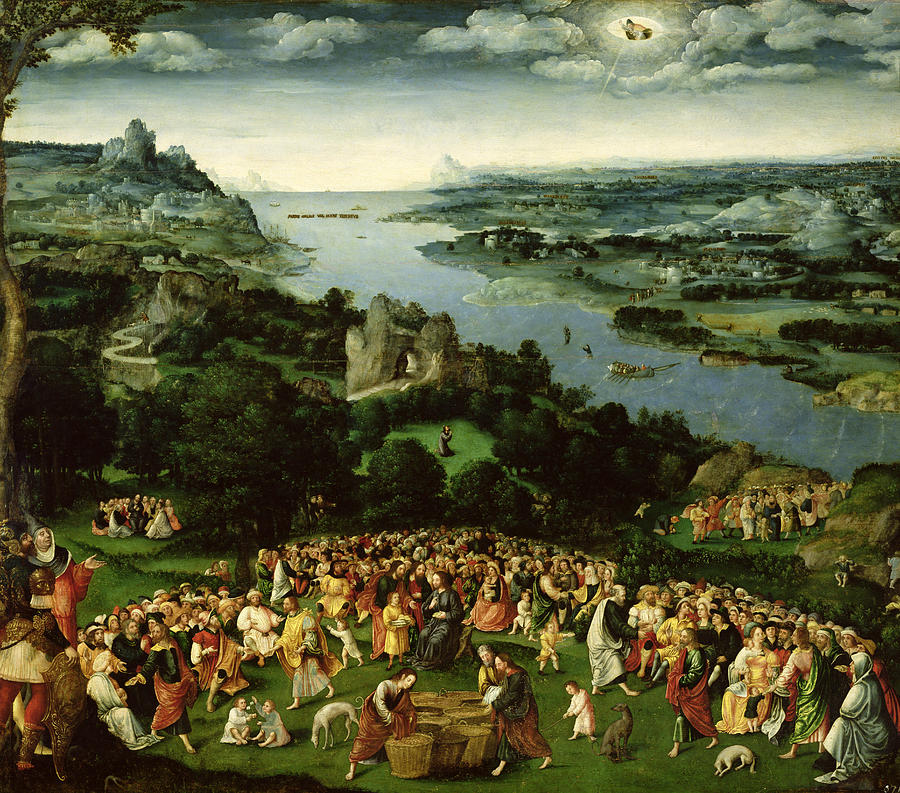


 RSS Feed
RSS Feed

